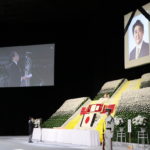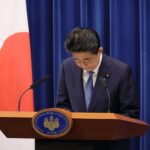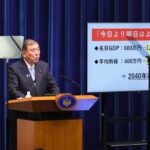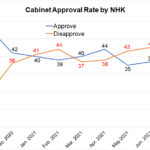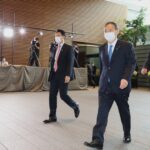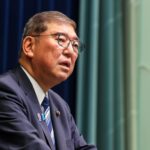Campaigning for the Upper House election begins today, June 22, before the voting and vote counting takes place on July 10. The number of seats up for re-election in the 248-seat House has increased by three from the last election in 2016 to 124, with one additional vacancy in the Kanagawa district bringing the total number of seats to 125.
Bills passed unanimously
The first ordinary Diet session of the Kishida Fumio administration, which lasted 150 days, ended on June 15, 2022. During this session, the main budget and supplementary budget for FY2022, 61 bills, and seven treaties were passed. This is the first time for a government to pass all new pieces of legislation since 1996, when the Hashimoto Ryutaro administration passed 110 bills. The Kishida administration was successful in narrowing down the number of bills in this Diet session.
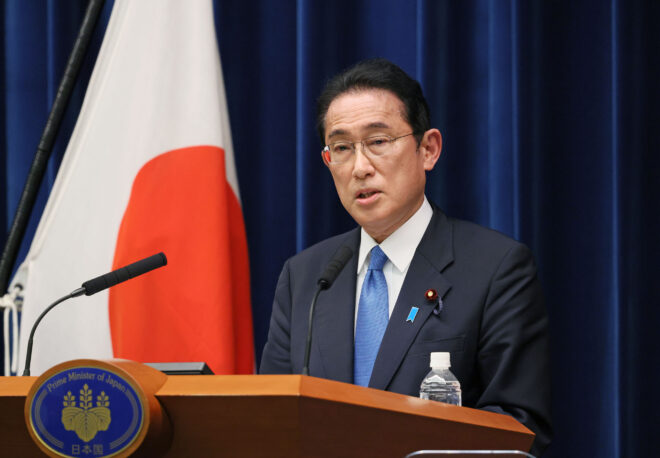
At a press conference following the ordinary session of the Diet on June 15, Prime Minister Kishida announced that he would establish a comprehensive task force on prices, wages, and livelihoods to address both prices and the economy. Photo: Cabinet Public Affairs Office
Several factors contributed to the unanimous passage of bills. Following its defeat in the Lower House election at the end of October 2021, the Constitutional Democratic Party of Japan (CDP), the leading opposition party, shifted its strategy from one of opposition to the ruling party to one of making policy recommendations. In addition, the nation had to make a concerted effort to implement COVID-19 measures as well as deal with issues related to the war in Ukraine. Also, there were no major political scandals. The key bills enacted include, in domestic affairs, the act for the establishment of the Agency for Children and Families and the revised criminal law that applies harsher penalties to insult charges; and in foreign affairs, the Economic Security Promotion Act (ESPA) to strengthen supply chains for key commodities. In general, the administration has maintained stability in its management of the Diet. Aside from the legislation passed, the issue of constitutional reform has been a notable aspect of parliamentary debate.
The Lower House’s Constitution Commission was convened a record 16 times in the current session, compared with only four times in the 2021 ordinary Diet session. The Constitution has been a topic of heated debate and a source of confrontation between the ruling and opposition parties since its inception in May 1947, with no significant progress having been made, notably with regard to the pacifist Article 9. The frequent meetings of the Commission during the current session were due to the need to discuss future emergency responses such as the spread of COVID-19 variant strains and security policy related to the war in Ukraine.
Depending on the result of the Upper House election, the movement to revise the Constitution may take on greater impetus in the fall extraordinary Diet session due to heightened public interest in Japanese security as a result of the Ukraine crisis. This was reflected in the unprecedentedly favorable response in an NHK opinion poll conducted on May 9, with 14 percent saying defense costs “should be significantly increased” and 38 percent saying they “should be increased to some extent.”
Kishida administration approval rating
The Kishida administration has tackled both domestic and foreign affairs in a steady, if unremarkable, manner. With regard to COVID-19 measures, an overview was presented in November 2021, under which hospital beds were secured, and the administration of vaccines was promoted. As a result, the vaccination rate for the third dose has surpassed 60 percent, with 90 percent of the elderly having received the third dose. This places the country in the highest tier for vaccination coverage among G7 nations. Despite the fact that COVID-19 economic initiatives have not achieved results, 70 percent of those polled approved of the decision made on June 10 to reopen the country to visitors from overseas (“appropriate” 47 percent, “should be less restrictive” 23 percent; NHK opinion poll June 13). In addition, the government launched initiatives to promote domestic tourism, and visitors are already returning to many of the country’s sightseeing destinations in droves.
Evaluation of COVID-19 measures was previously tied to the rise and fall of cabinet approval ratings, but the policies of the Kishida administration seem to have enjoyed consistently positive ratings. In addition, the response to the government’s handling of the Ukraine issue was positive. According to an opinion poll conducted by NHK on April 11, 13 percent of respondents said they “approve very much,” while 59 percent said they “approve to some extent.” Additionally, 35 percent of respondents said that sanctions against Russia were “appropriate,” while 47 percent said they “should be further strengthened.” The Cabinet approval rating has risen from 49 percent in October 2021 when the Kishida administration took office, to 54 percent at the time of the NHK opinion poll on June 20 (See Fig. 1).
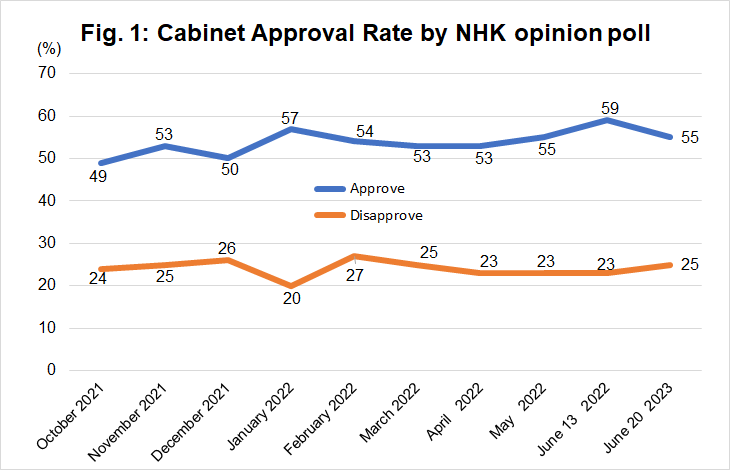
According to a June 20 opinion poll conducted by NHK, however, 56 percent of respondents “do not approve (very much 40% and at all 16%)” of the price measures described below, and the Cabinet approval rating is down 5 points from the poll conducted on June 13. This appears to be a backlash against the Bank of Japan (BoJ), which has done nothing to address the rapid weakening of the yen, keeping its easy money policy in place to prevent a cooling of the domestic economy. We can expect to see similar results in future opinion polls.
Key points of domestic and foreign affairs under the Kishida administration
Prime Minister Kishida held the office of foreign minister for 4 years 7 months. In his 2022 New Year’s reflection, he cited “realism diplomacy for a new era” as a mainstay of his foreign policy, saying, “Steadfastly holding aloft the flag of ideals for the future, and keeping reality firmly in view, I will advance ‘realism diplomacy for a new era,’ taking as its three pillars the importance of universal values, efforts to resolve global challenges, and efforts to resolutely and fully defend the lives and livelihoods of the Japanese people.”
When Russia invaded Ukraine the following month, Prime Minister Kishida joined forces with other G7 governments and the wider international community to strengthen solidarity in support of Ukraine. This was accomplished through a series of visits to Asia and Europe, as well as a Japan-US summit meeting and a QUAD leaders’ meeting. At the same time, he continued to appeal both at home and abroad for peace and order to be maintained in the region, and for its prosperity to be sustained, stating that a change in the status quo caused by unilateral and coercive actions by authoritarian nations in Ukraine could happen anywhere in the world, and that “Ukraine today could be East Asia tomorrow” (at the IISS Shangri-La Dialogue on June 10, 2022).
Meanwhile, consumer price and energy price increases induced by the Ukraine situation, in particular the price of gasoline, which would have been over 210 yen per liter if allowed to rise further, have been held down to a level of around 170 yen per liter through a subsidy measure. Overall, however, price control measures have been unsuccessful. The NHK opinion poll on June 13 shows that concern is growing, with 26 percent of respondents saying that the situation “greatly affects” households, and 50 percent saying that it “somewhat affects” households.
At a press conference following the ordinary session of the Diet on June 15, Prime Minister Kishida announced that he would establish a comprehensive task force on prices, wages, and livelihoods to address both prices and the economy. In addition, he stated that the 13 trillion yen comprehensive emergency measures and the 5.5 trillion yen reserve fund secured by the supplementary budget would be utilized flexibly to fund timely and comprehensive measures. A 79 trillion yen economic package was also implemented in November last year.
However, the situation is complicated by the need to manage an unpredictable weak yen, and this state of affairs could become even more difficult.
Issues influencing the Upper House election
The challenges outlined above are the primary issues that will influence the outcome of the Upper House election. The NHK opinion poll (conducted in June) presented respondents with a list of six policy concerns and asked which one they valued the most. “Economic measures” were valued most highly, by 42 percent of respondents, followed by “diplomacy and security” (17 percent), “social security” (15 percent), “COVID-19 measures” (7 percent), and “Constitutional revision” and “energy/environment” (both 5 percent). Public opinion support for the implementation of economic measures echoed the results of the aforementioned opinion poll conducted by NHK on June 20.
Another comparison between the latest NHK opinion poll and the opinion poll conducted prior to the Lower House election in October 2021 shows that “diplomacy and security” increased from 8 percent to 17 percent, indicating greater public awareness as a result of concerns regarding the situation in Ukraine and the possibility that “Ukraine today may be East Asia tomorrow.” In addition, “COVID-19 measures” dropped from 20 percent to 7 percent, showing that the public approve of the government’s measures. (See Fig. 2)
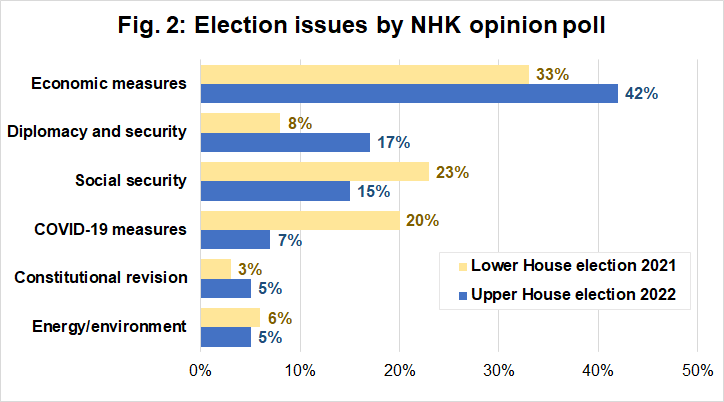
Will the political administration remain stable until 2025?
Voting behavior in respect of the Independents will impact this Upper House election, as it did in the last national election and the Lower House election in October 2021. The approval ratings for the political parties in the NHK opinion poll on June 13 are clear. However, the Independents account for 34.1 percent, increasing to 42.9 percent when the 8.1 percent of respondents who said “don’t know/no reply” are factored in (see Fig. 3). If the majority of these voters who make up more than 40 percent of the electorate cast their vote, the appeals made by each party to this segment of the population and the way in which this segment of the population decides to vote will influence the outcome of the election.
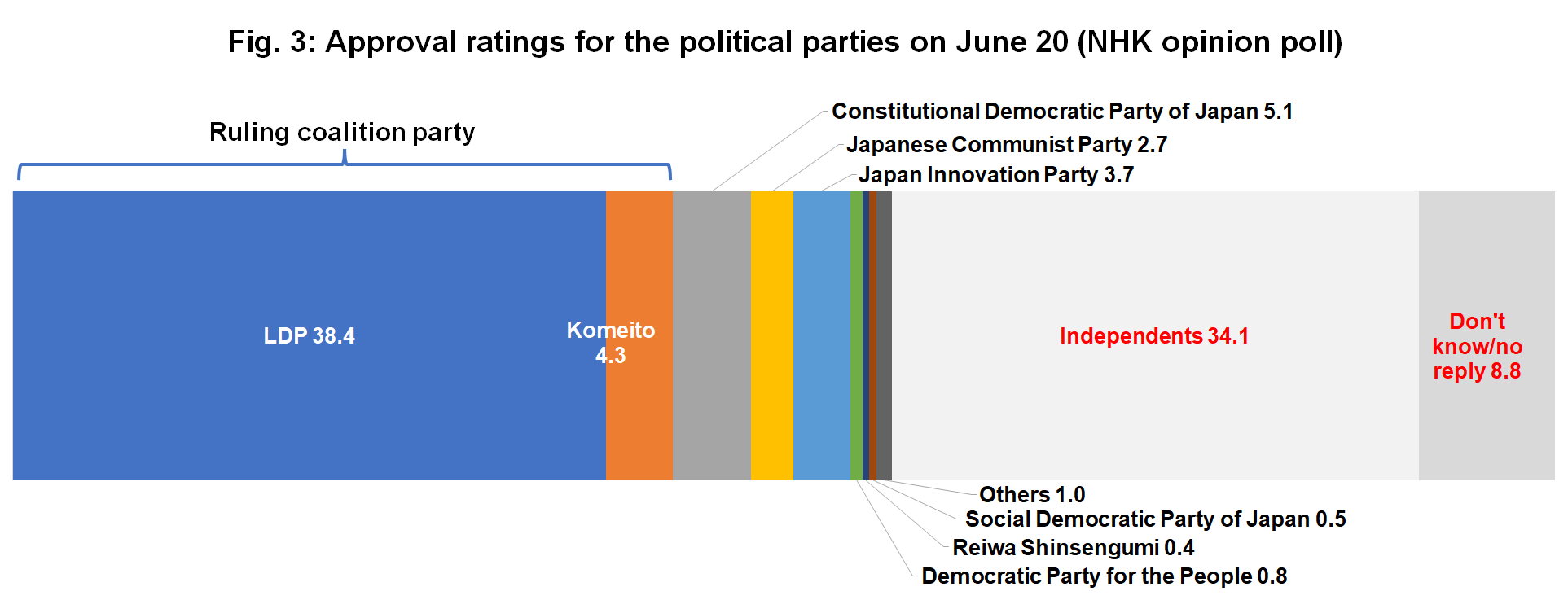
The current term of the House of Representatives will end on October 21, 2025. An Upper House election win for the ruling party could ensure a stable Kishida administration for the next three years. In the coming phase, attention will be focused on how the Kishida administration implements “the New Form of Capitalism” and “realism diplomacy for a new era.”
Prime Minister Kishida will be the first Japanese prime minister to attend a NATO summit, which will be held in Spain following the G7 summit in late June. The next three years will also be a test of Japan’s ability to lead the global community in both domestic and foreign affairs during a period of major transition in the world order, by taking measures at home to stabilize the domestic economy in response to rising consumer prices and a weak yen, and by championing pacifism and free trade internationally.
Sano Kentaro is a freelance writer.

